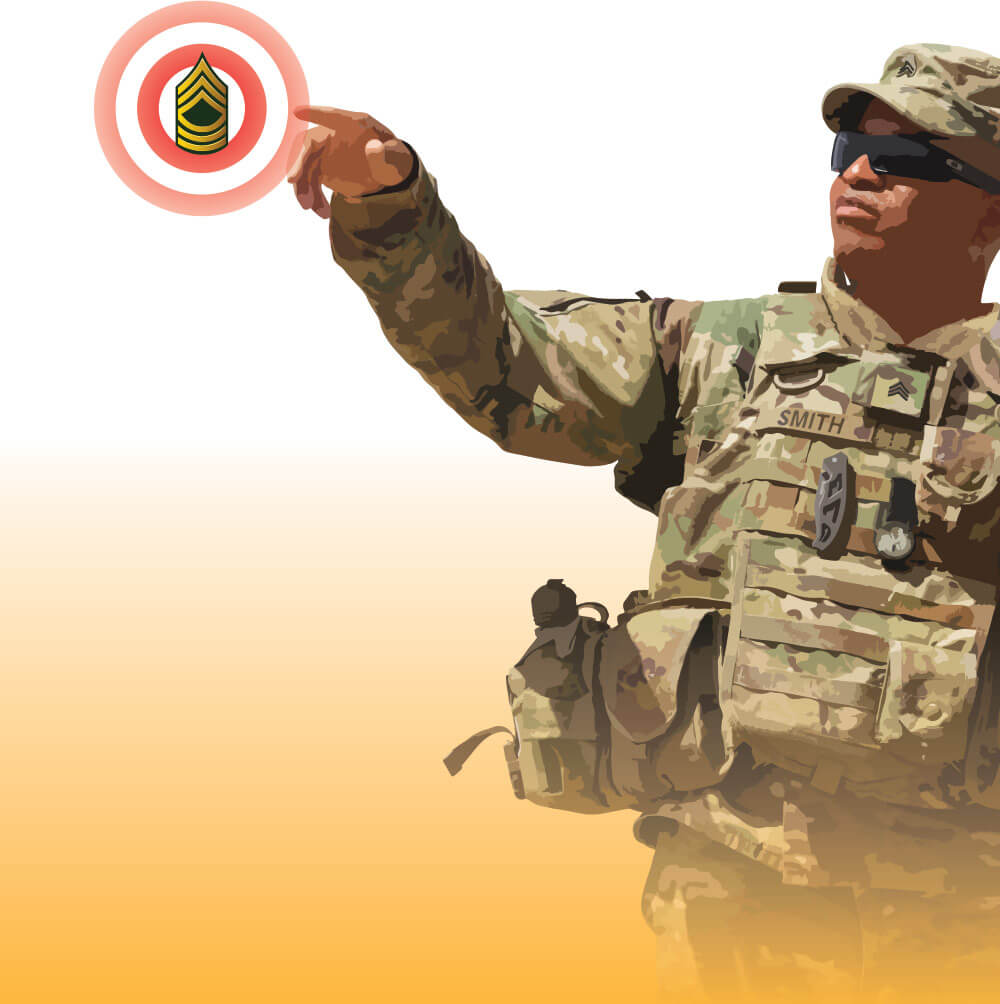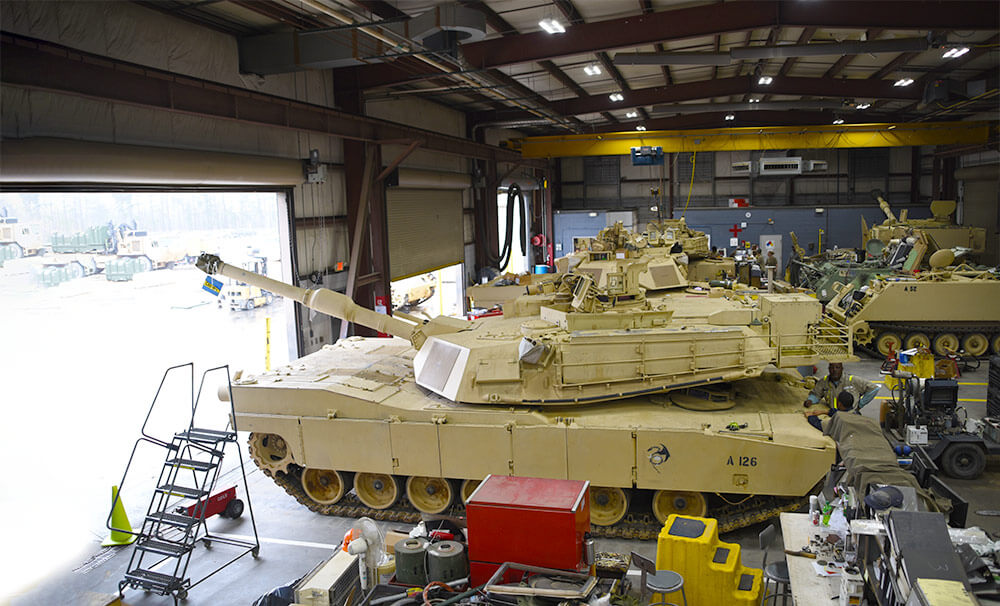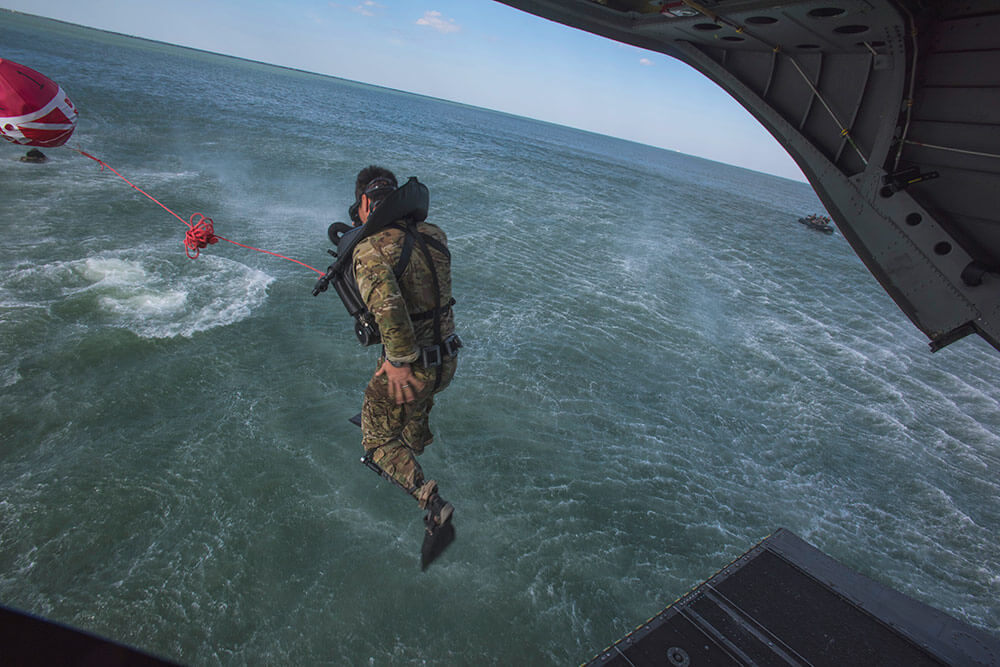How to Target Key Traits of Successful Army Leaders
The concept of effective leadership is ingrained in the training, techniques, procedures and doctrines used every day in today’s Army National Guard. However, while there is much focus on the importance of leadership, pinpointing exactly what makes someone a good leader is an elusive task. Nonetheless, excellence in leadership is a goal for which every Soldier should strive.
While there is no one formula for the perfect combination of “right stuff” that breeds highly effective leaders, certain foundational traits have been proven over time – both in the Army and in the civilian sector – to be true of great leaders.
Timeless Leadership Traits
According to Chief of Staff of the Army GEN Mark A. Milley, the traits sought after in today’s Army leaders include agility, adaptability, flexibility, mental and physical resilience, competence and character.
Agility
Agile leaders most often show a propensity for quick and decisive decision making. They tend to be motivated by opportunities to expand their knowledge and actively migrate towards challenges. Agile individuals thrive on solving the difficult problems, as they believe it to be mutually beneficial to themselves and the organization.
During his speech at the 2017 Association of the U.S. Army Annual Meeting and Exposition, GEN Milley noted that decision-making is “fundamental” to leadership. He encouraged commanders to always be “ready for what might come,” and not to “do any tasks that do not directly contribute to increasing the combat readiness of your unit.”
Adaptability
Adapting to change is a life skill and a leadership imperative. Leaders must be willing and able to steer and respond to change. A willingness to get out of one’s comfort zone and continuously learn new ways to adapt and change surroundings, marks a key difference between successful and unsuccessful leaders.
GEN Milley illustrated the importance of mastering adaptability in relation to combat situations. “We want our leaders at all levels, at all echelons to make thousands of simulated combat tactical decisions against a thinking and adaptive enemy, in order to gain confidence and skill, and to learn from their mistakes,” he said.
Flexibility
According to retired LTG Robert Ferrell, former Army chief of information officer, leaders of today’s Army are faced with complex and rapidly changing environments. Flexible leaders have the ability to change their plans to match the reality of the situation. This does not mean being incapable of making a decision. Instead, it means making the best decision possible based on available information – and when new information is given, being able to recalculate for a more precise outcome. As a result, flexible individuals can maintain productivity during transitions or periods of chaos. Leaders skilled at this competency embrace change, are open to new ideas and can work with a wide spectrum of people.
Mental and Physical Resilience
Resilient leaders see failure or adversity as a temporary setback from which they can quickly recover. They maintain a positive attitude and a strong sense of opportunity during periods of turbulence. When faced with ambiguity, resilient leaders find ways to move forward and avoid getting mired in indecision. At a 2017 Atlantic Council Commanders Series event, GEN Milley noted his foreseeing the world of warfare changing in the future, requiring Soldiers to be more resilient in tougher conditions. For Soldiers, especially Soldier-leaders, resilience is essential to accomplishing a mission. No matter the circumstance, a strong personal attitude helps prevail over any adverse external condition.
Competence
People seek to follow competent leaders. This does not mean a person in leadership needs to be the foremost expert on every area of an organization, but they do need to demonstrate a level of expertise that inspires others to trust in and follow them. Competency enables leaders to provide clear intent, create shared understanding, build cohesive teams and impart prudent direction.
Ferrell notes competence as a “vital” trait for leaders. He said, “Competence is developed over time through rigorous practice, professional learning and a commitment to excelling in every aspect of our duties.”
Character
Strong leaders display a degree of non-measurable behaviors – many of which are ingrained in Soldiers as part of a common set of Army values. These include accountability, fairness, trustworthiness and honesty. Leaders of strong character also exhibit emotional intelligence, which includes self-awareness and an awareness of and empathy for others. Ferrell noted these traits as “timeless practices” that great leaders turn into daily habits.
The question of “What makes a good leader?” will likely always be a topic of discussion. The important thing to keep in mind is that more important than finding a single answer to that question is maintaining a commitment to developing foundational leadership traits, and always striving to learn and evolve.
One good thing about developing leadership skills is that it does not require a person to already be in a leadership position. Look within your current job for opportunities to take an innovative approach to solve a problem. Volunteer to tackle an assignment that involves working on a team. Become a mentor. Read or take a class about an interesting application of science or technology. Keeping on a steady career track and leveraging newly gained skills may translate to future opportunities.
Whether you lead a unit in the Guard, a team or department in a civilian company, or simply lead yourself as you strive to attain your goals, leadership qualities are absolutely essential to your success. Building leadership skills today will better prepare you for the challenges in store tomorrow.
By STAFF WRITER Chase Whitlock


